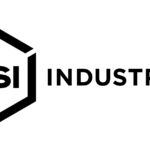In an era where startups are achieving billion-dollar market caps in just four years, wholesale distributors are being stifled by legacy technology systems that have become, in effect, a ball and chain. The speed of technological evolution has outpaced these systems’ adaptability, leaving companies that use them shackled to outdated processes and unable to respond swiftly to market demands.
For small- and medium-sized businesses (SMBs) in the wholesale distribution sector, this disconnect poses a significant threat to competitiveness and growth. Next-generation, composable ERP technologies are opening doors to an integrated solution that helps companies fully leverage their data and navigate modern commerce with agility and precision.
What is a Composable ERP?
Composable ERPs lean on a core, next-generation ERP platform that delivers most of a company’s essential functionality. Tailored, ancillary software applications that address specific customer and business needs are then added. Those applications, usually cloud-based, integrate with each other, so data flows seamlessly between them.
Think of it like a large, central Lego piece to which other pieces can be attached, moved around and customized. As business environments and needs change, applications can be added or swapped out. With this composable ERP approach, technology can pivot quickly and be optimized continually, allowing an organization to differentiate itself in the market.
The Stranglehold of Legacy Systems
Most small- and medium-sized wholesale distributors — 60% or more, based on our marketplace experience — still rely on legacy systems. This dependence is often reinforced by concerns about the cost of replacing existing platforms, a mature workforce that resists change and company leaders’ uncertainty about how to effectively evaluate and choose newer technology options.
However, next-generation technologies are no longer just “nice to have.” The marketplace has already shifted, and “tried and true” can no longer respond to commercial demand.
Direct-to-consumer platforms like Amazon and Walmart Plus, for example, have reset market expectations. Customers, suppliers and vendors have experienced the ease of interacting with such sellers and expect wholesale distributors to likewise offer technology capable of integrating orders and payments with shipping and tracking. In some distributor industry segments, up to 70% of purchasing now takes place through ecommerce platforms, requiring technology that supports that market demand.
Advancements in artificial intelligence (AI) and machine learning (ML) also heighten opportunities for organizations to use consumer data to evolve business lines and sales approaches. These technologies are setting a new bar for consumer expectations on seamless at-the-counter, online and mobile experiences, adding further pressure for SMBs to be agile while also maintaining customer service initiatives with a personal touch.
Legacy systems, with their rigid and siloed structures, are unsustainable and, left unaddressed, could eventually drive customers to competitors and put small- and mid-market wholesale distributors out of business.
Empowering Wholesale Distributors with Next-Generation Technology
Large corporations have kept pace with consumer buying behaviors by implementing integrated, next-generation technologies with data analysis capabilities. These ERP solutions have become more affordable, empowering smaller distributors to compete on a level playing field with industry giants.
Small- and mid-sized distributors that embrace composable ERPs may realize cost savings through automation and other gained efficiencies, including
- Workload Automation: A composable ERP can automate workloads that were once manual, freeing up staff for more strategic tasks and reducing unnecessary overhead costs. One example is a client that asked its branch personnel to send their accounts payable documents to the main accounting office every Monday morning. Three staff members then spent all of Monday manually entering those invoices. Since the company added next-generation system AP automation to its core ERP, all bills are automatically in the system by 8:05 a.m. on Mondays.
- Integrated Systems: Departmental data can be integrated into a centralized platform, eliminating silos and enabling distributors to create process automations that facilitate across-the-board business agility.
- Improved Customer Experience: Accurate and consistent information shared across all business channels – a hallmark of composable ERPs – can provide an improved customer experience at every touchpoint (e.g., payment, shipping, processing, returns, etc.).
- Data-Centric Business Strategies: With real-time data processing and reporting, data analysis can inform business decisions and empower growth.
The Role of a Composable ERP
A composable ERP integrates with business applications, from purchasing to inventory, payments, shipments, tax tools, human resources, customer relationship management and others.
Continuous evolution and integration, with the ability to mine data, can supercharge the way smaller distributors operate. The ability to do more with less empowers them to focus on strategic growth and adaptability and to stay competitive in a rapidly changing market.
Embracing the Future
To stay ahead of the curve and break free from the constraints of legacy systems, wholesale distributors must embrace composable ERPs that offer scalability, affordability and continuous innovation. Small- and mid-sized distributors that want to accelerate growth and marketplace competitiveness should look to composable ERPs as an investment that empowers future operational and business success.
Related Posts
-
TTDS increases its breadth of products and services with the addition of Proheat, a distributor…
-
Analysis of manufacturing tech orders provides an economic indicator as manufacturing industries invest in equipment…
-
Jim Thivierge will oversee NSI Industries' Building Technology Division unit operations in California, Ohio and…





